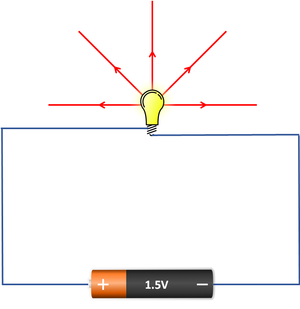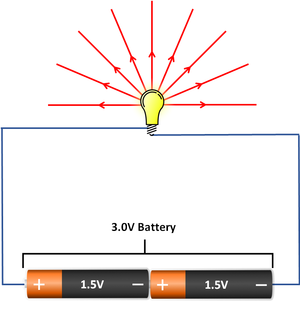Difference between revisions of "Potential Difference"
| Line 1: | Line 1: | ||
==Key Stage 2== | ==Key Stage 2== | ||
===Meaning=== | ===Meaning=== | ||
| − | '''Voltage''' is how much push electricity has. | + | '''Voltage''' is how much push [[electricity]] has. |
===About Voltage=== | ===About Voltage=== | ||
| Line 16: | Line 16: | ||
| style="height:20px; width:300px; text-align:center;" |A bulb will be brighter if the voltage is higher. | | style="height:20px; width:300px; text-align:center;" |A bulb will be brighter if the voltage is higher. | ||
|} | |} | ||
| + | |||
| + | ==Key Stage 3== | ||
| + | ===Meaning=== | ||
| + | [[Potential Difference]] is how much [[energy]] is [[Energy Transfer|transferred]] by a [[Electrical Current|current]]. | ||
| + | |||
| + | ===About Potential Difference=== | ||
| + | : '''Potential Difference''' is [[measure]]d using a [[Voltmeter]]. | ||
| + | : The [[SI Unit|units]] of '''potential difference''' are [[Volt]]s ([[V]]). | ||
| + | : '''Potential Difference''' is sometimes described as the 'push' that moves a [[Electrical Current|current]] around a [[circuit]]. | ||
Revision as of 11:20, 25 October 2018
Contents
Key Stage 2
Meaning
Voltage is how much push electricity has.
About Voltage
- The bigger the voltage the more push the electricity has to go around the circuit.
- Adding another cell to the circuit in series will increase the voltage.
- With a bigger voltage a lamp will be brighter and a buzzer will be louder.
| A series circuit with one cell and one bulb. | A bulb will be brighter if the voltage is higher. |
Key Stage 3
Meaning
Potential Difference is how much energy is transferred by a current.

